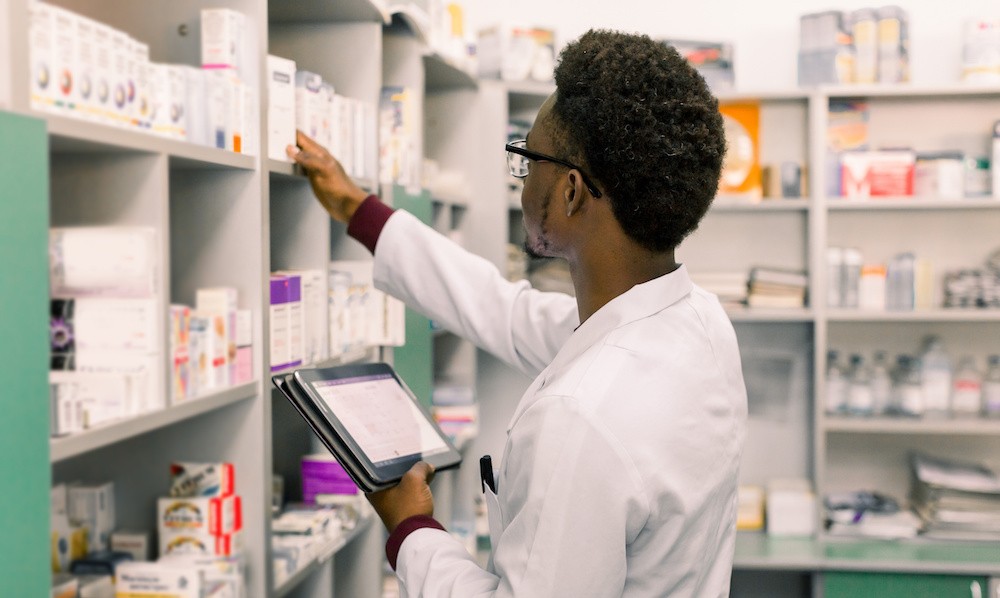


It is necessary to describe the pharmacist’s commitment not only to the healthcare team, but more generally, in an environment of growing consumer demands, employee stresses, and substantial scientific and technical advances. We will not successfully recruit, educate and prepare pharmacists, or prepare for the future pharmacy workforce, without clarification about the role of the pharmacist. Keeping this in mind, we have prepared a guide for you emphasizing the role of a pharmacist with some useful tips for them.
The roles of a pharmacist are:
Many people believe that this is “filling, licking and sticking” as they conjure up a mental picture of a pharmacist measuring pills, preparing a bottle label, and treating patients with medicines. It is true in the case of a pharmacist.
Whenever a prescription application is ambiguous or potentially dangerous to a patient, the dose and composition (e.g., liquid or tablet) must be checked, as well as whether a brand name product is needed or whether a generic version may be provided.
Check the medication log of each patient every time they have a fresh or refill prescription filled out. This is the best way for a pharmacist to avoid conflicts with medications that are potentially harmful.
This includes more than talking about adverse reactions and associations with other medicines, food, beer, grapefruit juice, and other drinks. Guiding entails teaching patients how and when to take doses, monitoring patients to see how the medication works, sharing tips about how to reduce adverse effects while optimizing benefits, and listening to all the needs of a patient.
Pharmacists can help patients heal and avoid getting sick by sharing advice on the use of non-prescription remedies, taking health supplements such as vitamins, using herbal and natural health products, exercising, and maintaining a good diet. Maintaining health requires more than taking prescription medications.
In particular, pharmacists operating in a chain and individual pharmacies must file insurance applications and negotiate with health insurance companies.
The supreme duty of pharmacists is to ensure the “three Rs” i.e. right medication, the right patient, and the right dosage. Meeting this requirement includes supervising the work of pharmacy technicians, student interns, and residents and mentoring them. Pharmacy owners and supervisors are also responsible for making employment decisions and for setting and implementing policies in the workplace.
Everyone in a pharmacy has certain obligations to keep patient files up-to-date, to ensure that important items are kept and that necessary records are obtained and filed. You can spend the same or more time on administrative activities as on patient care if you hold a supervisor or management role.
As a pharmacist, dedication, concentration, and meticulous attention to detail are required for your work. That said, occasionally we realize that you can concentrate so hard on the job at hand that you fail to keep an eye on what your patients want and need from you, so try to keep an eye on them.
Patients often require more information about their condition, even their loved ones. It is often an important thing to remind them that the disease they are suffering from is a serious condition and needs care. Enable patients to resolve this by addressing advantages and possible adverse consequences candidly and tailoring them to their individual situations.
Patients fighting with mental illness are mostly just frustrated and struggling. The pharmacist and workers at the pharmacy can often be the ones they show their health effects onto. Try to be polite, though, and use verbal gestures to try and change their actions to see if you can help.
You will certainly learn the difficult challenges they contend with by dealing with mental disease patients who are not pharmacy-specific problems with intimate interactions, social issues, such as the failure to find a job or enough food, etc. The best way to get them the best treatment is to recognize the problem and link them to the right provider in your community.
Being a pharmacist can be a really tough job. In order to help you, Probity and Ethics provide a probity course for pharmacists that will surely help them in dealing with any situation. For more information, visit Probity and Ethics.
© Copyright 2025 Probity & Ethics. All Rights Reserved.